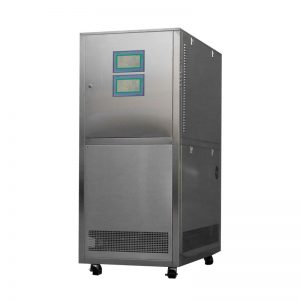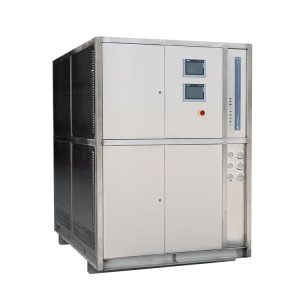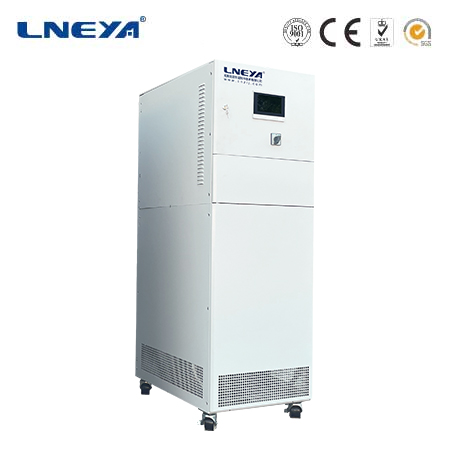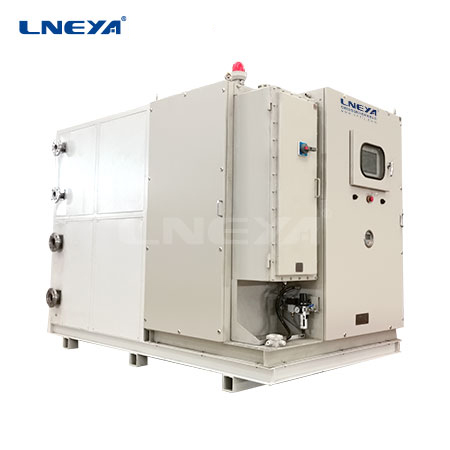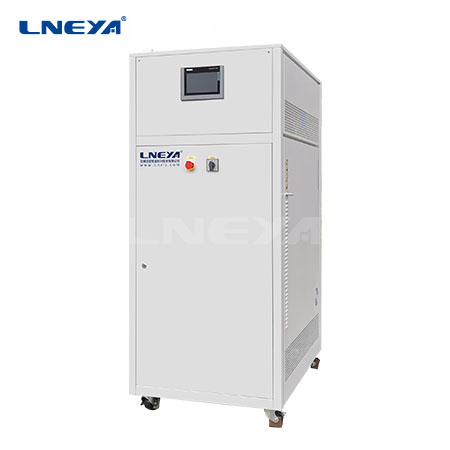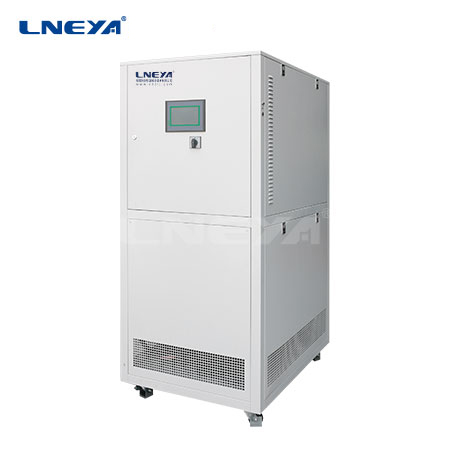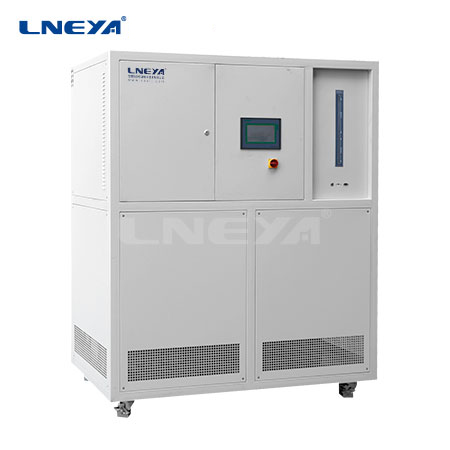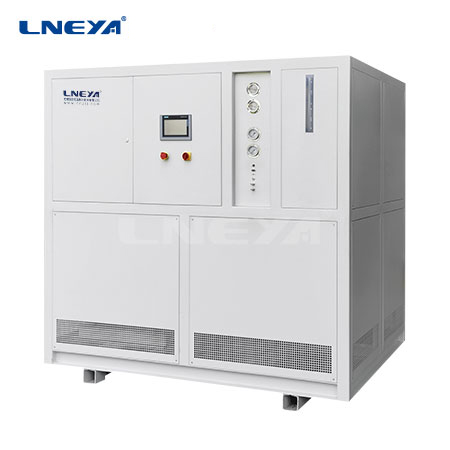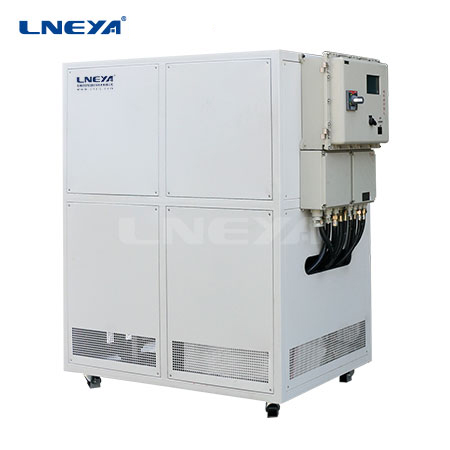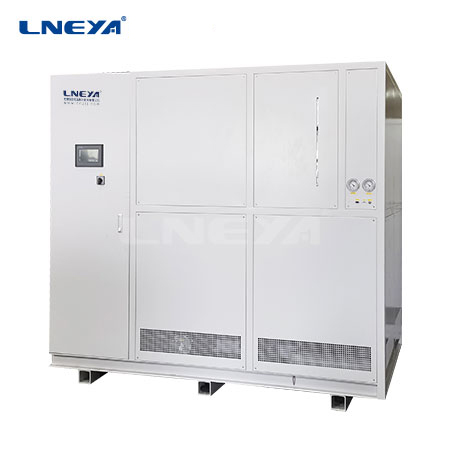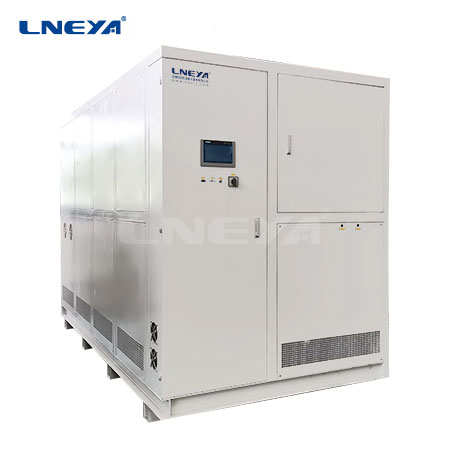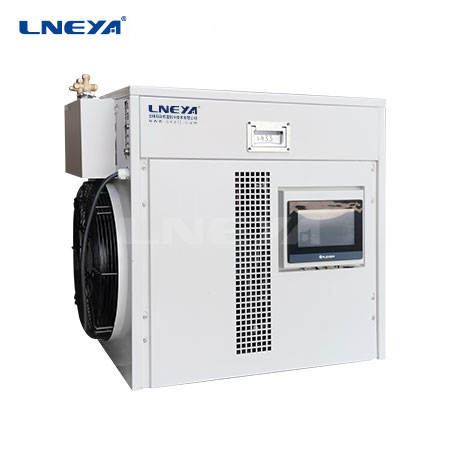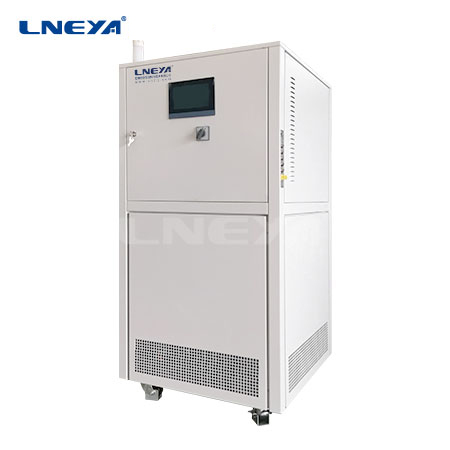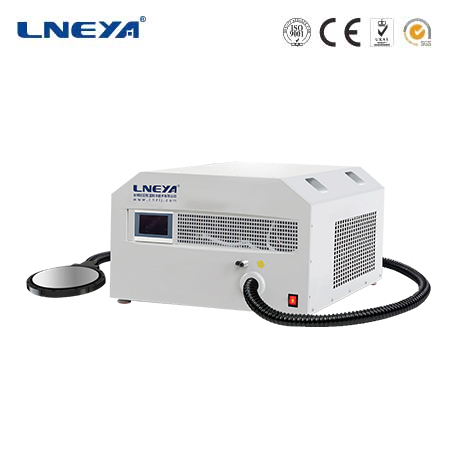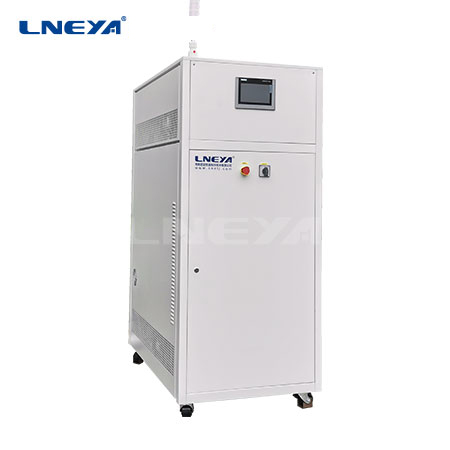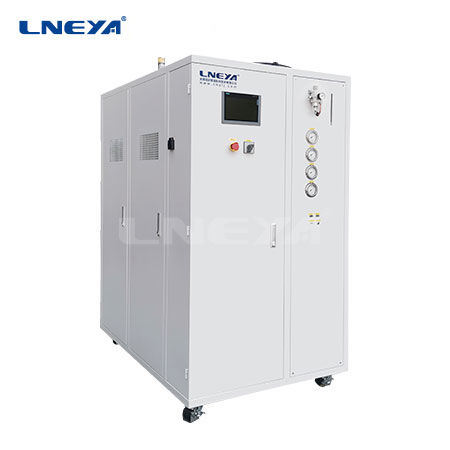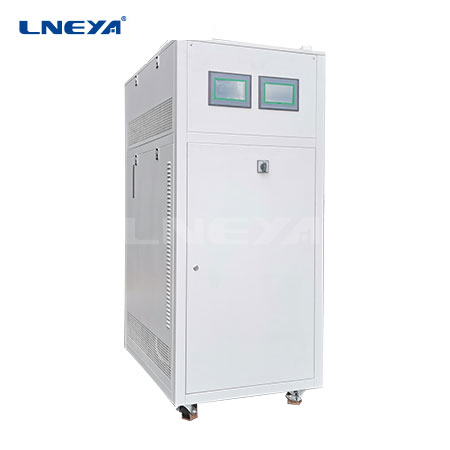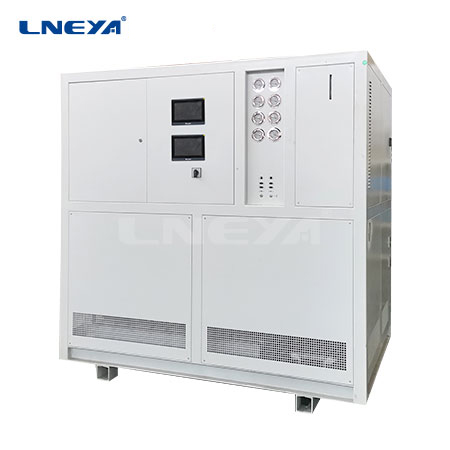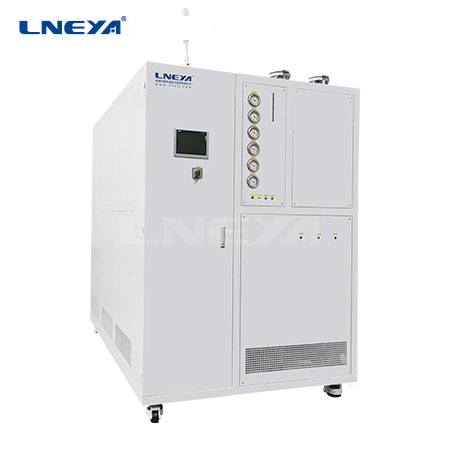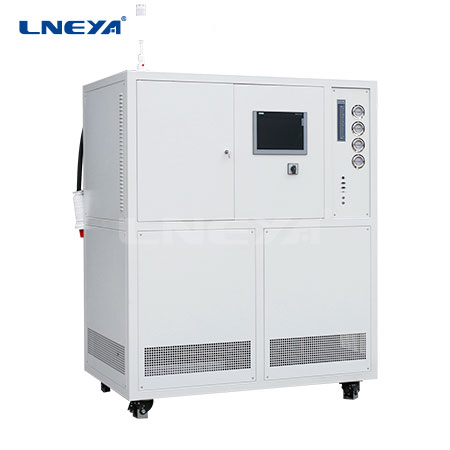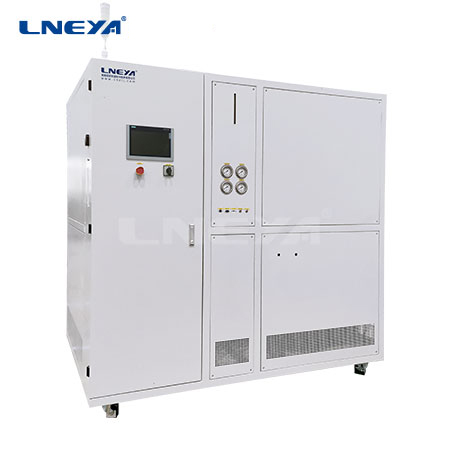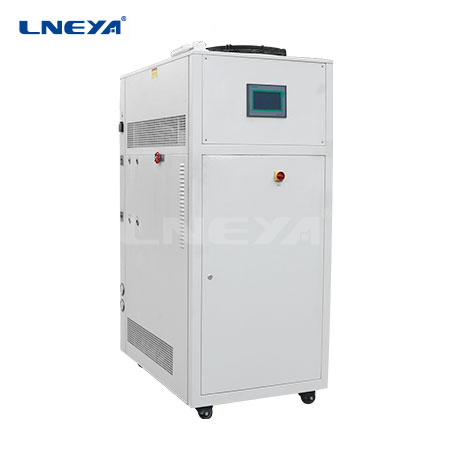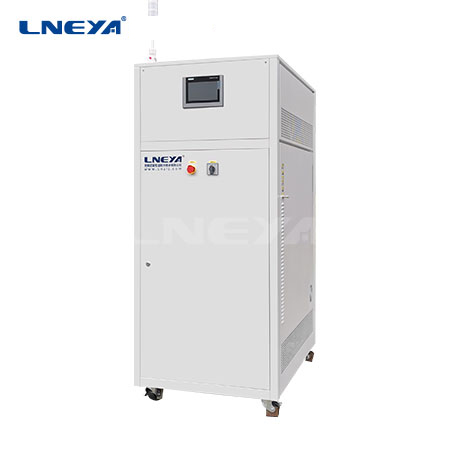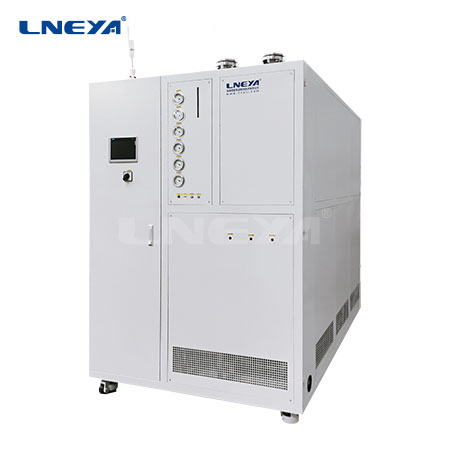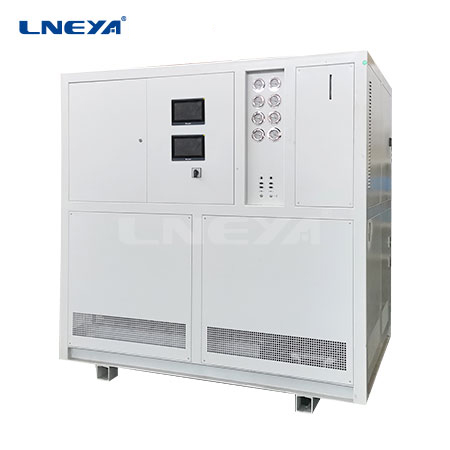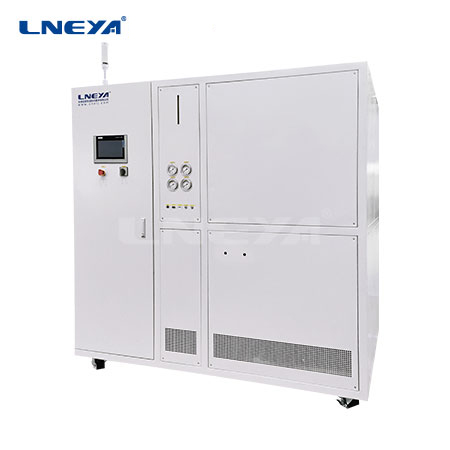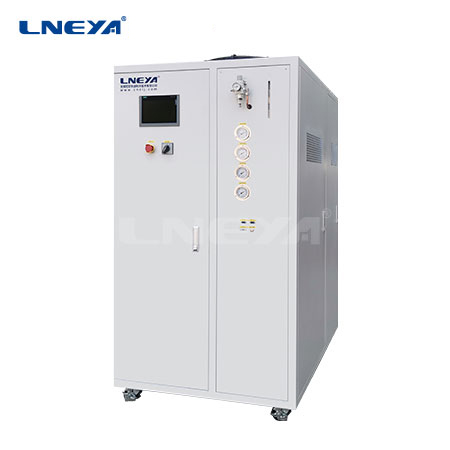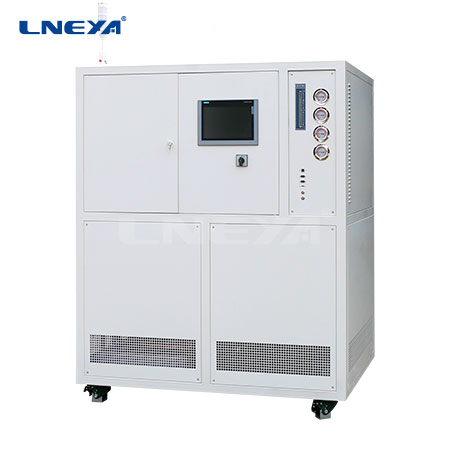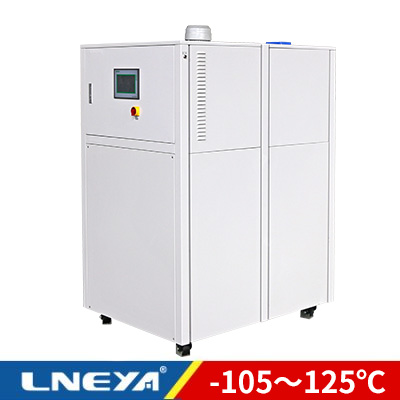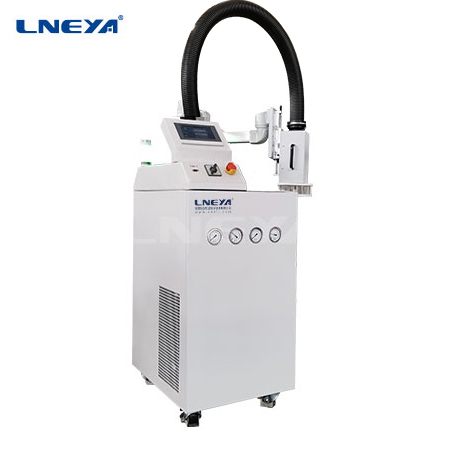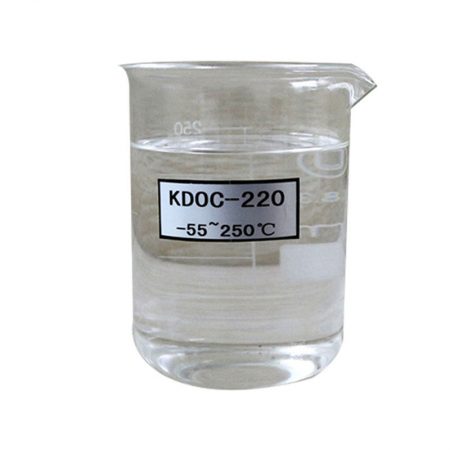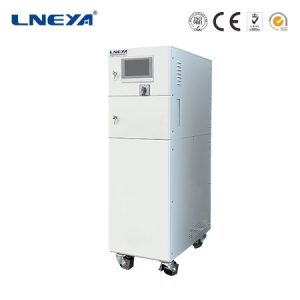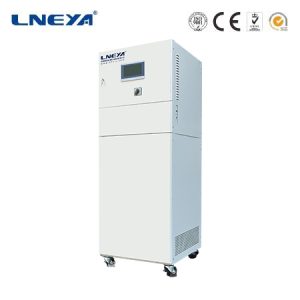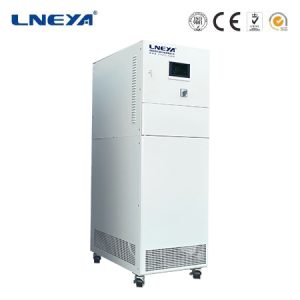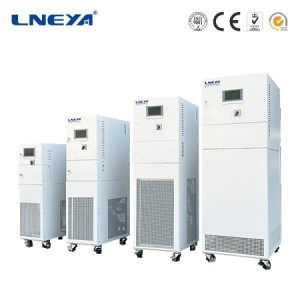Process Cooling Water System
Kontaktieren Sie uns noch heute für die perfekte Lösung zur Temperaturkontrolle
Process cooling water system is one of the circulation systems used in the fields of industrial production, energy and construction. It is usually used to transfer heat from high-temperature or high-energy equipment to cooling water and dissipate heat to the air or underground.
The process cooling water system consists of multiple components, including water circulation pumps, cooling towers, cooling water pipes and coolers. The water circulation pump draws the cooling water from the cooling tower, circulates it in the equipment and returns it to the cooling tower for heat dissipation. Cooling towers spray hot water into the air flow from the cooling area, causing the water to be cooled and returned to the system. Cooling water pipes carry cooling water to different equipment and return hot water to the cooling tower. A cooler is a device that transfers hot water to cooling water.
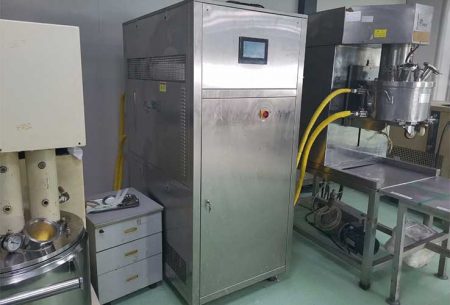
Comparison of open and closed process cooling water systems
The process cooling water system is divided into two types: open system and closed system. The closed system mainly consists of water pump, plate exchanger, process equipment, pipe network and constant pressure equipment. The open system mainly consists of water tank, water pump, plate exchanger, process equipment. Equipment and pipe network.
The same points between open and closed systems:
①All are indirect heat transfer;
② Process equipment has relatively high requirements for water quality, so softened water is required for system water replenishment (secondary reverse osmosis water from a pure water station can be used as system water replenishment, without adding a water treatment device);
③The system refrigerant is all refrigerator cooling water.
The differences between open systems and closed systems:
① The cooling water in the open system is partially in contact with the atmosphere at the water tank;
② The open system cannot utilize the system return water pressure and is not energy-saving enough.
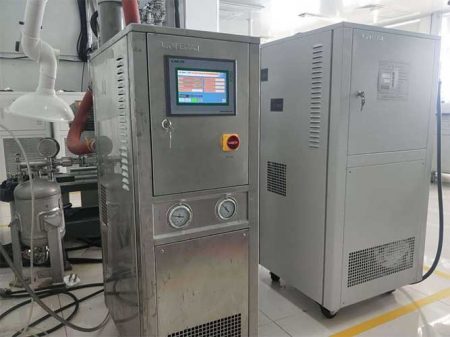
Selection of process cooling water system mode
The mode of process cooling water system is divided into open system and closed system. How to choose open system and closed system during the design process should be based on the following situations:
① When the height difference between the highest point of the process equipment and the water pump plate replacement equipment is relatively large (height difference exceeds 10m), it is recommended to use a closed system, so that the residual pressure and static head of the equipment can be fully utilized;
② When the water supply pressure of process equipment is very high but the pressure difference of the equipment is not large, it is recommended to use a closed system, so that the residual pressure of the pipe network can be used to reduce the water pump head and save energy;
③ When the plant process equipment is put into production in phases or in batches or when the equipment update and adjustment are relatively simple, taking into account the system debugging ability, it is recommended to use an open system, which can speed up the system debugging and operation. At the same time, due to the addition of a water tank, the system retains more water and the cold source When interrupted, it has certain accident buffering capabilities.
④ From the perspective of energy saving, the use of a closed system can greatly reduce the head of the process cooling water supply circulation pump. On the one hand, it can save the initial investment, on the other hand, it can save energy and reduce operating costs.
⑤ When the cooling water temperature of the equipment can be directly cooled by a cooling tower on the hottest days or the owner requires a small investment, an open system can be used. When the equipment cooling water inlet temperature cannot be met by an open cooling tower, a closed system is used, using chilled water as the refrigerant.
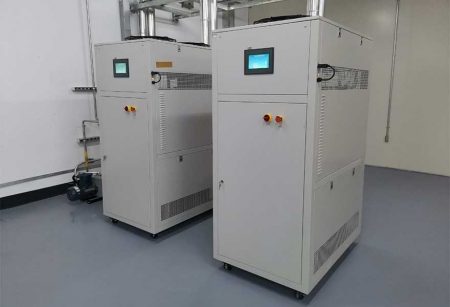
In conclusion
Process cooling water system is widely used in semiconductor, microelectronics and other industries. In order to achieve good benefits in improving the stability of system engineering, reducing engineering costs and saving energy, during the system engineering design process, users need to choose based on actual usage conditions. ideal operating mode.
Wir bieten die Entwicklung und Herstellung kompletter Temperaturkontrollsysteme an. Von Standardmodellen bis zu kompletten kundenspezifischen Produkten bis hin zu 900 Tonnen. Wir haben uns auf den Kundenservice spezialisiert und sind bestrebt, jedem Kunden zu helfen, das optimale Temperaturkontrollsystem für seinen spezifischen Bedarf zu finden.
Wir bieten maßgeschneiderte Lösungen, die nicht dem Standard entsprechen. Es sind sowohl einzelne Kühlaggregate als auch kombinierte Kühl- und Heizaggregate erhältlich.
E-Mail: info@lneya.com WeChat ID: +8615251628237 WhatsApp: +86 17851209193


Rückkühler / Umwälzkühler
Die Kältemaschine kann in verschiedenen Industrien und Labors eingesetzt werden und unterstützt kundenspezifische Designs.
| Temperaturbereich | Serie -25°C ~ +30°C | -45°C ~ +30°C Reihe | Serie -60°C ~ -20°C | Serie -80°C ~ -20°C | Serie -120°C ~ -70°C | ||||
| Kühlleistung | 0,8 ~ 30kW | 0,75 ~ 12kW | 0,4 ~ 6kW | 0,2 ~ 6kW | 0,3 ~ 5kW | ||||
| Hinweis: Jeder Temperaturbereich von -150℃ ~ +350℃ und jede Kühlleistung kann angepasst werden | |||||||||
 Kaltwassersätze / Kleinkaltwassersätze
Kaltwassersätze / Kleinkaltwassersätze
Die Kältemaschine kann in verschiedenen Industrien und Labors eingesetzt werden und unterstützt kundenspezifische Designs.
| Temperaturbereich | -18°C ~ +30°C | +5°C ~ +35°C Reihe | |||||||
| Kühlleistung | 0,35 ~ 0,9kW | 1,8 ~ 50kW | |||||||
| Hinweis: Jeder Temperaturbereich von -150℃ ~ +350℃ und jede Kühlleistung kann angepasst werden | |||||||||

Niedertemperatur-Kühlgeräte
Wir haben uns auf die Herstellung von Niedertemperaturkältemaschinen mit einem Temperaturregelbereich von bis zu -150°C spezialisiert, die den Kühlbedarf verschiedener Branchen decken.
| Temperaturbereich | Serie -25°C ~ -5°C | Serie -45°C ~ -10°C | Serie -60°C ~ -10°C | Serie -80°C ~ -30°C | Serie -110°C ~ -50°C | Serie -150°C ~ -110°C | |||
| Kühlleistung | 12 ~ 360kW | 6 ~ 180kW | 6 ~ 180kW | 4 ~ 180kW | 2 ~ 120kW | 2,5 ~ 11kW | |||
| Hinweis: Jeder Temperaturbereich von -150℃ ~ +350℃ und jede Kühlleistung kann angepasst werden | |||||||||

Hochtemperatur-Kühlgeräte
Die Kältemaschine kann in verschiedenen Industrien und Labors eingesetzt werden und unterstützt kundenspezifische Designs.
| Temperaturbereich | +5°C ~ +40°C | -25°C ~ +40°C | -45°C ~ +40°C | -80°C ~ +80°C | -100°C ~ +80°C | ||||
| Kühlleistung | 6 ~ 40kW | 2 ~ 15kW | 1 ~ 8kW | 0,6 ~ 3kW | 1,5 ~ 3kW | ||||
| Hinweis: Jeder Temperaturbereich von -150℃ ~ +350℃ und jede Kühlleistung kann angepasst werden | |||||||||
Kühlen und Heizen Kaltwassersätze

Kühlen und Heizen Kaltwassersätze
Temperaturregelbereich: -120°C bis +350°C
Kühl- und Heizungsthermostate, die in verschiedenen Industriezweigen weit verbreitet sind.
| Temperaturbereich | Serie -10 ~ +150°C | Serie -25 ~ +200°C | Serie -25 ~ +300°C | Serie -45 ~ +250°C | Serie -45 ~ +300°C | Serie -60 ~ +250°C | Serie -60 ~ +300°C | Serie -70 ~ +250°C | Serie -80 ~ +250°C | Serie -90 ~ +250°C | Serie -100 ~ +100°C | ||
| Kühlleistung | 1,5 ~ 15kW | 1 ~ 200kW | 1 ~ 200kW | 0,45 ~ 200kW | 0,9 ~ 25kW | 0,25 ~ 60kW | 0,75 ~ 25kW | 0,4 ~ 15kW | 0,3 ~ 80kW | 0,2 ~ 80kW | 0,45 ~ 80kW | ||
| Hinweis: Jeder Temperaturbereich von -150℃ ~ +350℃ und jede Kühlleistung kann angepasst werden | |||||||||||||

Kühlgeräte mit Rücklaufheizung
Temperaturregelbereich: -45°C bis +250°C
| Temperaturbereich | Serie -25°C ~ +200°C | Serie -45°C ~ +250°C | |||||||
| Kühlleistung | 1 ~ 15kW | 0,25 ~ 15kW | |||||||
| Hinweis: Jeder Temperaturbereich von -150℃ ~ +350℃ und jede Kühlleistung kann angepasst werden | |||||||||
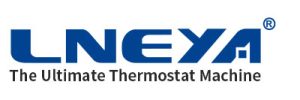 LNEYA
LNEYA
 简体中文
简体中文










